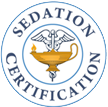Alabama Board of Nursing review – June 5, 2019
Reviewed by Sedation Certification – December, 2023
State Sedation Policy – Yes
Can RN’s give sedation – Yes
Can RN’s give Propofol/Ketamine – No
Contact the Board of Nursing if you have any questions!
https://admincode.legislature.state.al.us/administrative-code/610-X-6-.08
What is the Alabama Board of Nursing’s position on nurses administering various medications?
- JUNE 5, 2019
The Board does not issue rulings on specific medications. The general rules governing medication administration are included in ABN Administrative Code 610-X-6-.07, “Medication Administration And Safety,” as follows:
“The RN or LPN shall not administer medications for anesthetic purposes or to render an individual unconscious without meeting the requirements of Chapter 610-X-9-.02.” [“Application For Approval To Practice As A Certified Registered Nurse Anesthetist”]
However, RNs may be authorized to administer medications for Moderate Sedation in accordance with Standards established in Chapter 610-X-6-.08 and always within scope of practice.
Rule 610-X-6-.07(5): “Administration of medications by routes beyond basic educational preparation, including but not limited to intrathecal, intracavitary, intraosseous require a standardized procedure.”
For administration of any medication, the nurse is expected to utilize a complex set of knowledge, skills, and abilities necessary to ensure the safety of the individual receiving the medication. The components of medication administration are listed below.
- Knowledge
- Drug action, classifications
- Expected therapeutic benefit of medication
- Expected monitoring
- Illness or injury processes
- Developmental stages
- Possible side effects/adverse reactions & interventions for same
- Emergency interventions for anaphylactic reactions
- Seven rights of administration
- Drug/Drug and Food/Drug Interactions
- Calculation of drug dosages
- Federal and state legal requirements related to storage, controlled substances, etc.
- Decision-Making
- When, how, and whether medications should be administered
- Assessment of individual’s complaint prior to administering PRN medications
- When to contact the prescriber
- Skills
- Dexterity to open medication packaging
- Read, write English
- Read, write, and comprehend Latin phrases relevant to administration of medication
- Measuring medication dosages
- Math calculations
- Routes of administration
- Documentation
- Administration
- Therapeutic effect
- Principles of documentation
- Seven rights of administration
- Controlled drug records per federal and state law
610-X-6-.08 Standards for Moderate Sedation
1) After patient assessment and verification of the physical presence of a physician, dentist, or certified registered nurse anesthetist and licensed or unlicensed assistive personnel in the procedural area, the registered nurse may administer ordered medications for the purpose of inducing moderate sedation that allows the patient to be aroused and to retain reflexes for short-term therapeutic or diagnostic procedures, pursuant to facility policies and procedures.
2) The minimum requirements for a registered nurse to perform moderate sedation and associated monitoring includes successful completion of an organized program of study, supervised clinical practice, and demonstrated clinical competence.
3) The minimum training for the registered nurse managing the care of patients receiving moderate sedation shall include:
A) Anatomy, physiology, pharmacology, cardiac arrhythmia recognition and complications related to sedation and medications.
B) Total patient care requirements to be assessed during moderate sedation and recovery including physiologic measurements including but not limited to;
i. respiratory rate,
ii. oxygen saturation,
iii. blood pressure,
iv. cardiac rate and rhythm,
v. level of consciousness.
C) Principles of oxygen delivery, respiratory physiology, transport and uptake and demonstration the ability to use oxygen delivery devices.
D) Anticipation and recognition of potential complications of sedation in relation to the type of medication being administered.
E) Requisite knowledge and skills to assess and intervene in the event of complications or undesired outcomes and to institute nursing interventions in compliance with orders or institutional protocols or guidelines.
F) Demonstration of skill in airway management resuscitation.
4) The registered nurse managing and monitoring the patient receiving moderate sedation shall have no other responsibilities during the procedure that would leave the patient unattended or compromise continuous monitoring.
5) The registered nurse shall ensure safety considerations including but not limited to continuous monitoring of:
a. blood pressure,
b. cardiac rate and rhythm
c. continuous intravenous access
d. level of consciousness
e. oxygen saturation
f. respiratory rate
6) The registered nurse shall have advanced cardiac life support (ACLS) or comparable certification.
7) The registered nurse may not administer medications for moderate sedation if the following are not available:
(a) Physical presence of a physician, dentist, or certified registered nurse anesthetist and licensed or unlicensed assistive personnel.
(b) Immediate availability of monitors, defibrillator, airway devices including suction, and emergency medications.
Author: Alabama Board of Nursing
Statutory Authority: Code of Ala. 1975, §§34-21-1(3)(b), 34-21-2(a)(21), 34-21-2(c)(6).
History: New Rule: Filed March 20, 2003; effective April 24, 2003.
Repealed and New Rule: Filed November 23, 2009; effective December 28, 2009.
Repealed and New Rule: Filed July 25, 2016; effective Sept. 8, 2016.
